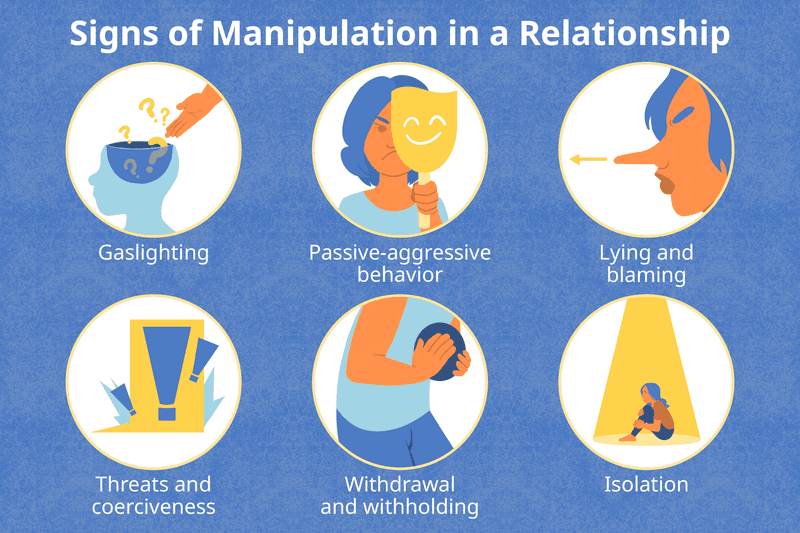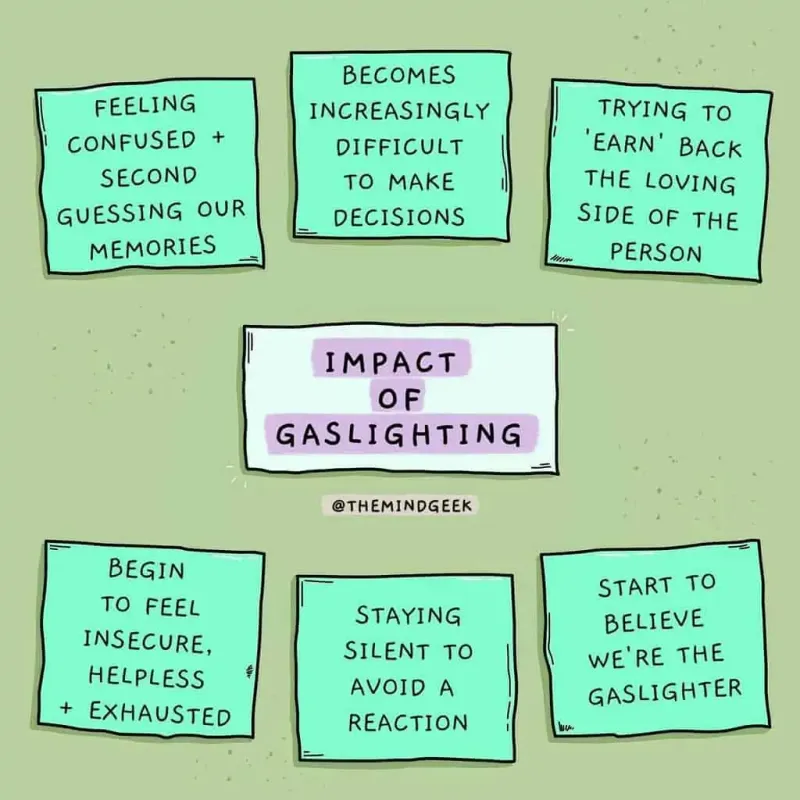17 Red Flags You’re Being Emotionally Manipulated By Your Partner

In relationships, emotional manipulation can be subtle yet profoundly damaging. Recognizing these red flags can be crucial to understanding your own feelings and maintaining a healthy connection.
While each sign may seem minor on its own, together they paint a clearer picture of emotional control. Here are 17 red flags that indicate you might be experiencing emotional manipulation from your partner.
1. You Feel Guilty for Having Basic Needs

Guilt over having basic needs can be a sign you’re being manipulated. Your partner might dismiss or belittle your requirements, leaving you feeling selfish for simply wanting the basics. You may begin to internalize these feelings, believing you ask for too much.
This guilt is a powerful tool for manipulators, as it can lead to self-doubt and insecurity. You might question the legitimacy of your needs, wondering if you’re being unreasonable.
Understanding that having needs is human can be the first step toward regaining confidence and asserting your worth in the relationship.
2. They Constantly Flip the Script Mid-Conversation

Flipping the script mid-conversation keeps you in a state of confusion, making it hard to keep track of the discussion. One moment, you may feel assured, and the next, completely lost. This tactic destabilizes your perception of reality.
By shifting the narrative, your partner gains control over the conversation, steering it in their favor. This can leave you disoriented and less likely to assert your viewpoint.
Recognizing this pattern is crucial. You deserve a dialogue where both voices are heard clearly, without manipulation or distortion.
3. Your Memory is Regularly Questioned

When your memory is constantly questioned, you may start doubting your own recollections. This tactic, known as gaslighting, makes you unsure about what truly happened, eroding your confidence in your own mind.
Over time, this doubt can make you overly reliant on your partner’s version of events, further entrenching their control. It’s a slow, insidious process that can leave you feeling isolated and vulnerable.
Trusting your memory and instincts is vital. Keeping a record of events can help preserve your sense of reality and counter manipulation.
4. You Start Apologizing Even When You’re Unsure Why

Feeling compelled to apologize without knowing why is a classic sign of emotional manipulation. You might find yourself saying sorry just to maintain peace, even when you haven’t done anything wrong.
This behavior often stems from a fear of conflict or disappointing your partner. Over time, it can erode your self-esteem, making you feel responsible for every issue that arises.
Recognizing this pattern can be liberating. You deserve to express your feelings and needs without the constant burden of misplaced guilt.
5. They Bring Up Your Past to Shut You Down

Bringing up your past as a means to control is a manipulation tactic that preys on your vulnerabilities. It can be a way to divert attention from the present issue, making you feel inadequate or ashamed.
This strategy is often used to weaken your arguments, suggesting you’re incapable of change. It creates a barrier to open communication, fostering a sense of shame and insecurity.
Overcoming this requires recognizing your past as a part of your growth, not a weapon against you. Your history doesn’t define your worth or your ability to assert yourself in the present.
6. You Second-Guess Your Feelings Around Them

Second-guessing your emotions can be a sign of manipulation, where your feelings are invalidated or dismissed. This can make you doubt your emotional responses, even in situations where they are justified.
The constant questioning leads to confusion, blurring the lines between genuine emotions and imposed guilt. Over time, this can undermine your trust in your own instincts.
Acknowledging your right to feel, without constant validation from your partner, is crucial. It’s important to trust your emotional compass and recognize when it’s being overshadowed.
7. They Withhold Affection Until You “Behave”

Withholding affection as a form of punishment is a powerful manipulation tactic. When affection is conditional, it sends the message that love must be earned through compliance.
This behavior can create a cycle of dependency, where you strive to meet expectations just to receive basic warmth and care. It’s a cycle that feeds insecurity and anxiety.
Understanding that affection should never be used as leverage is key. Love should be freely given and received, not manipulated to control your behavior or emotions.
8. You Feel Isolated from Your Support System

Isolation from friends and family is a common tactic used to gain control. When you’re cut off from your support system, your partner becomes your primary source of validation and comfort.
This isolation can be gradual, with subtle discouragement from social interactions, or more overt actions to keep you distant. Over time, it can lead to loneliness and dependence.
Reconnecting with your support network is vital. These connections are essential for maintaining perspective and emotional well-being, providing a counterbalance to manipulation.
9. They Create Small Problems to Stay in Control

Creating minor issues to maintain control keeps you off-balance. When you’re busy dealing with these small problems, your partner remains at the center of your attention.
This tactic is subtle yet effective, ensuring you’re constantly preoccupied with resolving trivial matters. It creates a dynamic where your partner’s needs always take priority.
Recognizing this pattern can help you refocus your energy on more meaningful aspects of your life. It’s important to address real issues and not get bogged down by distractions.
10. You’re Walking on Eggshells More Than You Realize

Walking on eggshells means constantly being on edge, trying to avoid conflict or upset. This heightened state of alert can be a sign of underlying manipulation.
When you find yourself anticipating your partner’s moods to maintain harmony, it indicates a lack of safety in expressing yourself. Over time, it can lead to chronic anxiety and stress.
Recognizing this behavior is crucial for reclaiming your space. You deserve an environment where you can speak freely and honestly without fear of repercussions.
11. They Twist Your Words, Then Blame You

Twisting your words to create misunderstandings is a powerful form of manipulation. It can make you feel responsible for conflicts, even when they’re not your fault.
This tactic shifts blame, ensuring you’re always on the defensive. It erodes trust and makes communication fraught with tension. Over time, it damages your confidence and self-expression.
Understanding this pattern allows you to resist being misrepresented. Clear communication and setting boundaries are essential to counteracting this manipulative behavior.
12. You Feel Emotionally Drained After Simple Conversations

Leaving conversations feeling emotionally exhausted is a sign of manipulation. Simple interactions should not drain your energy or leave you feeling depleted.
This exhaustion stems from navigating a landscape of subtle control and emotional demands. You might feel like you’re constantly trying to meet expectations that are unclear or unattainable.
Recognizing this pattern is a step toward reclaiming your emotional energy. You deserve to engage in conversations that uplift and empower, not ones that leave you worn out.
13. They Dismiss Your Emotions as “Overreactions”

Dismissing your emotions as overreactions is a tactic to undermine your feelings. It can make you question the validity of your emotional experiences, sowing seeds of self-doubt.
This behavior suggests your emotions are irrational or excessive, minimizing your perspective. Over time, it can stifle your ability to express how you truly feel.
Standing up for your emotions is vital. Your feelings are valid and deserve recognition. Reclaiming your emotional space is essential for a balanced and respectful relationship.
14. They Play Victim When You Set Boundaries

Playing the victim when you set boundaries is a manipulative tactic that shifts the focus away from your needs. It can make you feel guilty for asserting yourself, as if you’re causing harm by standing your ground.
This behavior often involves turning the situation around, painting themselves as the one who’s wronged. It discourages you from setting limits, ensuring their control remains unchallenged.
Recognizing this pattern empowers you to uphold your boundaries. Your right to self-respect and autonomy should never be compromised.
15. You’re Always Adjusting—But They Rarely Do

When you find yourself constantly adjusting to accommodate your partner, it can be a sign of manipulation. This imbalance suggests your needs are secondary, creating a one-sided dynamic.
The constant adaptation can be exhausting, leaving you feeling like you’re never enough. Over time, it can erode your sense of self-worth and confidence.
Understanding this pattern is key to asserting your own needs. Relationships should be a balance of give and take, where both partners adjust and compromise.
16. They Minimize Your Achievements

Minimizing your achievements is a tactic to keep you from feeling empowered or confident. By downplaying your successes, a manipulative partner maintains control and discourages your personal growth.
This behavior can make you second-guess your accomplishments, undermining your self-esteem. It can prevent you from celebrating your own milestones and recognizing your worth.
Recognizing the value of your achievements is crucial. Your successes deserve to be acknowledged and celebrated, not minimized or dismissed.
17. You Feel Like You’re Losing Your Sense of Self

Losing your sense of self in a relationship is a powerful indicator of manipulation. It often results from prioritizing your partner’s needs to the detriment of your own identity.
Over time, you may find you’ve compromised too much, losing touch with who you are. This can lead to feelings of emptiness and confusion about your own desires and goals.
Reclaiming your identity involves reconnecting with your interests and values. It’s essential to maintain a sense of self that’s independent of your partner’s influence.
